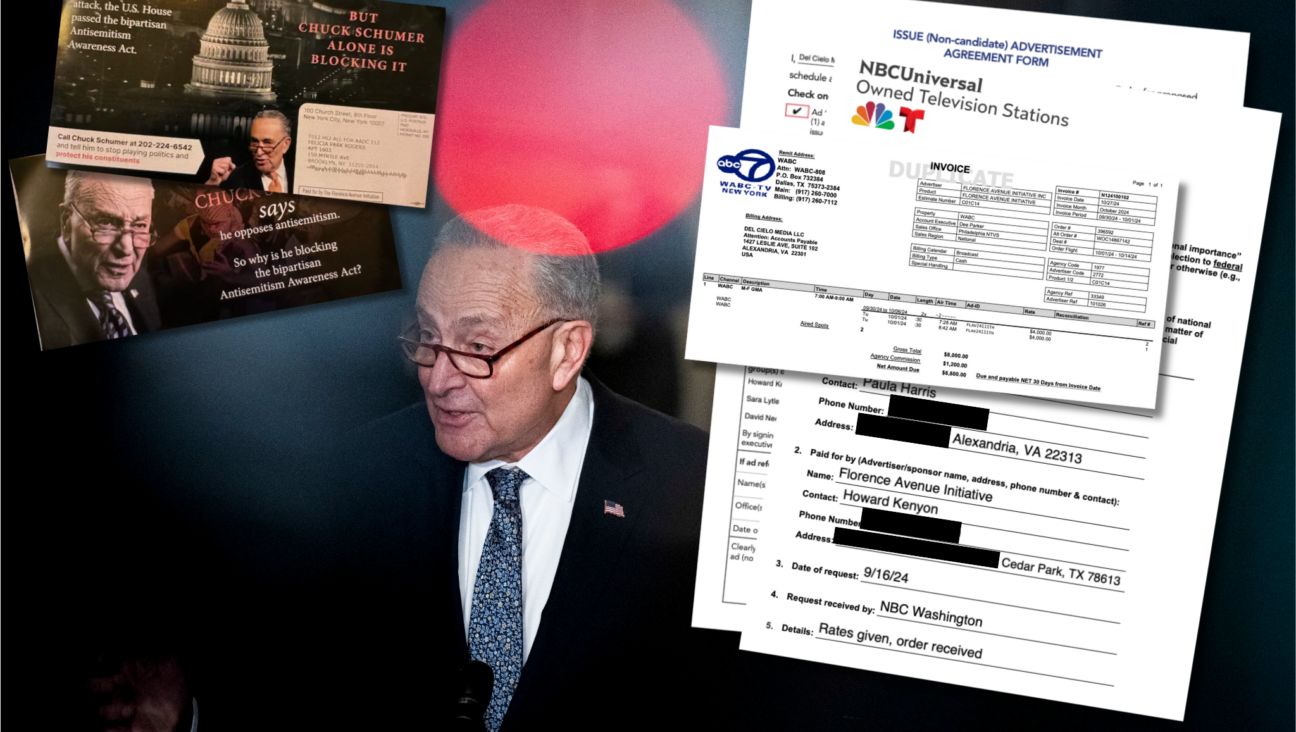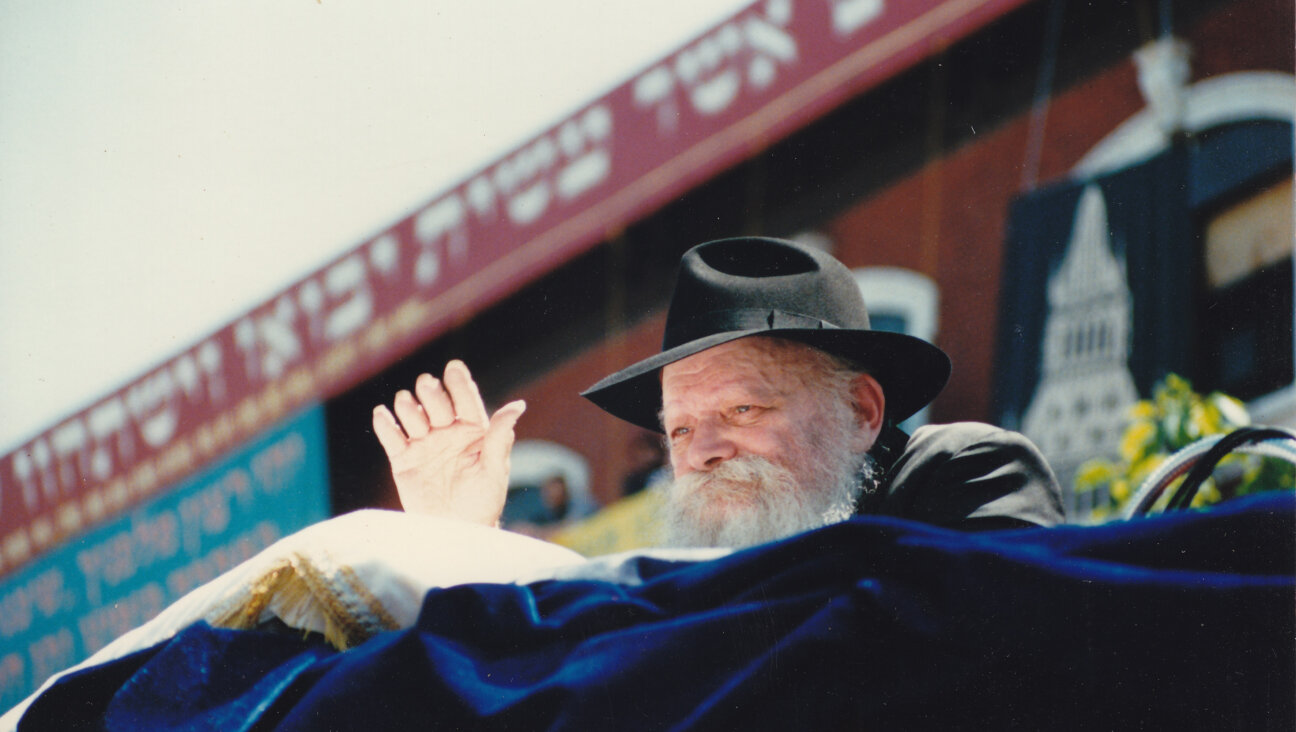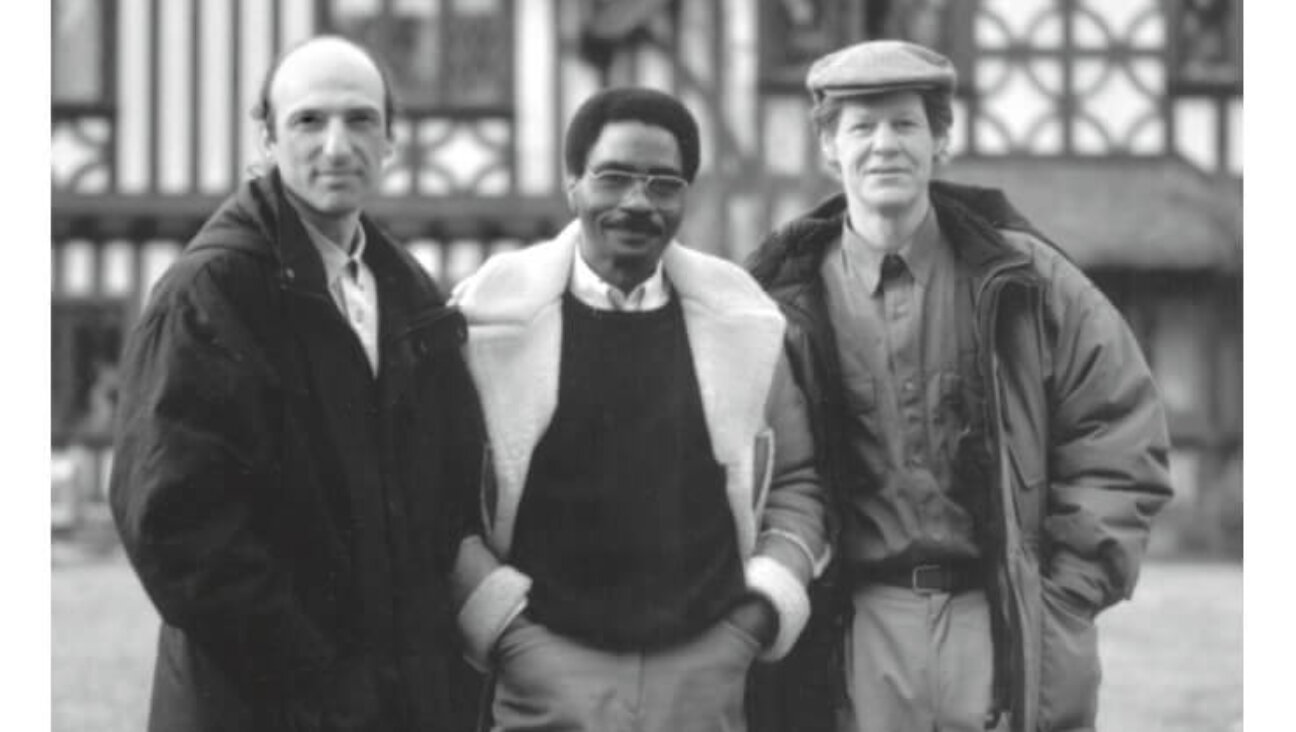Channeling Sholom

Theatrics: Theodore Bikel during a performance of ?Sholom Aleichem.? Image by KAREN LEON
ISRAEL CANCER RESEARCH FUND HONORS BROOKLYN-BORN NOBEL LAUREATE DR. RICHARD AXEL
“I called every client I knew to shoot someone [in order] to get visibility on Page Six [of the New York Post], joshed criminal defense lawyer Benjamin Brafman, master of ceremonies at the Israel Cancer Research Fund’s November 4 “Tower of Hope” ball, held at Gorham Hall. “There are people alive in this room because of ICRF” said Brafman in a serious mode. “In the 1960s, Iranian generals came to Israel…for cancer care,” he said. “The Iran that used to come to Israel for cures now wants the destruction of Israel.” In his whimsical acceptance speech, recipient of ICRF’s Tower of Hope Excellence in Science Award, Dr. Richard Axel, recalled that as a surgeon-wannabe during his second year of medical school he was made to promise that “I would never practice on a live patient.” After Axel received the 2004 Nobel Prize in physiology or medicine, someone sent him a letter that stated: ”I also want to win a Nobel Prize. How do you do it?” Here’s Axel’s recipe: “I grew up in a Jewish home in Brooklyn with parents who never finished high school but instilled in me a respect for education.” University professor and investigator of the Howard Hughes Medical Institute at the College of Physicians and Surgeons of Columbia University, Axel developed gene-transfer techniques that permit the introduction of virtually any gene into any cell. His studies also led to the isolation and functional analysis of a gene for the lymphocyte surface protein CD4, the cellular receptor for HIV, the virus that causes AIDS.

Theatrics: Theodore Bikel during a performance of ?Sholom Aleichem.? Image by KAREN LEON
Dr. Barbara Edelstein, recipient of the ICRF Dr. Daniel G. Miller Excellence in Medicine Award, founded the 22-year-old Women’s Radiology, the first radiology practice in New York City exclusively devoted to diagnostic imaging of the breasts and the reproductive system. “Practicing medicine and caring for patients is a joy,” said Edelstein. Citing the current statistic that one out of every eight women in the United States may get cancer, she stated: “Now it is when rather than if.” ICRF grant recipientYoav Henis informed, ”Israel… the government… does not support research…. For the cost of one lab in the U.S., you can establish five labs in Israel. Without the incentive of research funds to return to Israel, researchers go elsewhere.” Henis, who is currently the incumbent of the Zalman Weinberg Chair in cell biology at the George S. Wise Faculty of Life Sciences at Tel Aviv University, performs research, partially funded by an ICRF grant, in the area of cancer biophysics.
The Tower of Hope Excellence in Surgery Award was presented to Dr. Mark Sultan, chief of the Division of Plastic and Reconstructive Surgery at St. Luke’s/Roosevelt and Beth Israel Medical centers. An expert in facial cosmetic surgery and reconstructive surgery of the breast, Dr. Sultan was lauded for undoing “disfiguring surgery.” Modestly, he described his mission as “making you look better.” The evening’s program included welcoming remarks by ICRF President Harriet Elisofon, greetings by Israel’s consul general in New York, Asaf Shariv, and parting words by ICRF chairman Dr. Yashar Hirshaut, who touted ICRF’s grant role vis-à-vis the Nobel Prize in chemistry won by doctors Aaron Ciechanover and Avram Hershko — the first Israelis to win this prize.
LENOX HILL AUTUMN BALL HONORS NEONATAL ANGEL DR. ARMANDO GRASSI
“The life of a child is so precious,” said a teary-eyed Dr. Armando Grassi, recipient of the Medal of Distinction at the November 9 Lenox Hill Hospital “Steppin’ Out” black-tie ball, held at the Waldorf-Astoria. Chairman emeritus of Lenox Hill’s Department of Neonatology and Pediatrics, Grassi amplified, “There is nothing more rewarding in this world than seeing a family in distress take home a baby that wasn’t supposed to live.” The 1,000-plus guests applauded a video that followed the progress of a 1-pound, 3-ounce preemie who survived to live a normal life and is now a college student. “What we do is civilized,” said Argentina-born Grassi — whose wife, Jacqueline, had been the head nurse at Lenox Hill Hospital’s Neonatal Critical Care Unit. The event’s vice chairs included Jean and Ralph Baruch, Pat and **Ed Gutman, and Deborah and Allen Grubman, whose daughter, Lizzie, was among the gala committee members.
Grassi, whose career at Lenox Hill spans nearly 30 years, stated: “To be a doctor is a privilege…. When parents trust us it is an act of faith. We are here to save a baby… to ameliorate pain, mortality. And for that I thank my patients.” After medicine, the second passion of Grassi, an avid philatelist, is postal history. A frequent speaker at philatelic conferences, he has focused on how wars, diseases and epidemics have influenced the way in which mail is delivered around the world. His dissertation, “U.S. External Mail Routes: 1856–1879,” earned him an award for “the best historical research” from the American Philatelic Society and the American Council of Historic Research.
THEODORE BIKEL CHANNELS SHOLOM ALEICHEM IN “LAUGHTER THROUGH TEARS”
The National Yiddish Theatre-Folksbiene’s November 17 opening night of Theodore Bikel in “Sholom Aleichem: Laughter Through Tears” was a theater night for the history books. Bikel, who has impersonated the Sholom Aleichem-created character Tevye (the milkman) in the Jerry Bock/Sheldon Harnick musical “Fiddler on the Roof” more than 2,500 times, is, at 85, a Jewish national treasure with international resonance. Written and performed by Bikel, this 90-minute Yiddish-English performance based on Sholom Aleichem (1859–1916) shtetl stories about joy, loss, celebration, despair and tradition in czarist Russia and its later echoes in America would be a challenge for a man half his age. For additional flavoring, in the audience was Bel Kaufman, Sholom Aleichem’s 98-year-old (“and a half!” she corrected) granddaughter whose oft-told tale “grandfather told me [in Russian] that when I squeezed his hand he wrote better” Bikel incorporated into his script.
The proof of the pudding — or should I say kugel — that the opening-night reception had legs was in the audience I witnessed during my revisit November 24. The full house included several busloads from the Rockland County, N.Y.’s Jewish community center, the Riverdale YM-YWHA and the Brooklyn section of the National Council of Jewish Women. The response was — as the title says — with laughter and tears as Bikel, in his narrative, mused, proclaimed, remembered and sang about a world that is now archival. By the time Bikel wrapped himself up in a full-size tallit in a synagogue setting, it struck me that there are few, if any, equal masters of Yiddish and Yiddish theater tradition who can channel this swatch of nostalgia as authentically as Bikel.
Special kudos to musical director, pianist and accompanist Tamara Brooks (aka Mrs. Bikel), director Derek Goldman and accordionist Merima Kljuco. “Laughter and Tears” runs until December 13 at Baruch College’s Performing Arts Center.
A message from our CEO & publisher Rachel Fishman Feddersen

I hope you appreciated this article. Before you go, I’d like to ask you to please support the Forward’s award-winning, nonprofit journalism during this critical time.
We’ve set a goal to raise $260,000 by December 31. That’s an ambitious goal, but one that will give us the resources we need to invest in the high quality news, opinion, analysis and cultural coverage that isn’t available anywhere else.
If you feel inspired to make an impact, now is the time to give something back. Join us as a member at your most generous level.
— Rachel Fishman Feddersen, Publisher and CEO






















